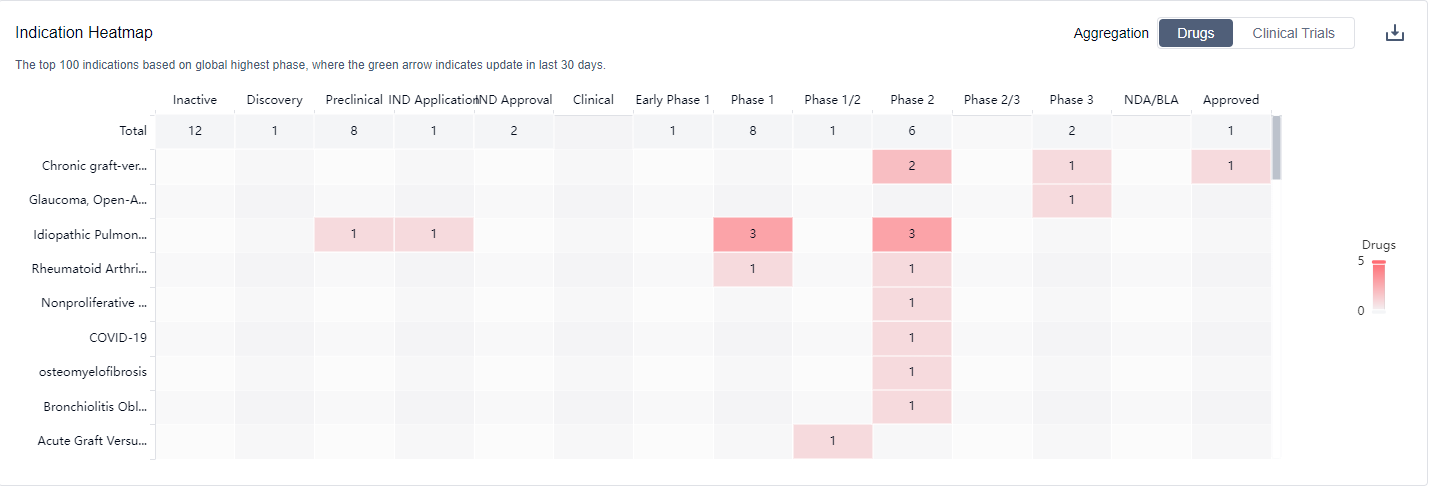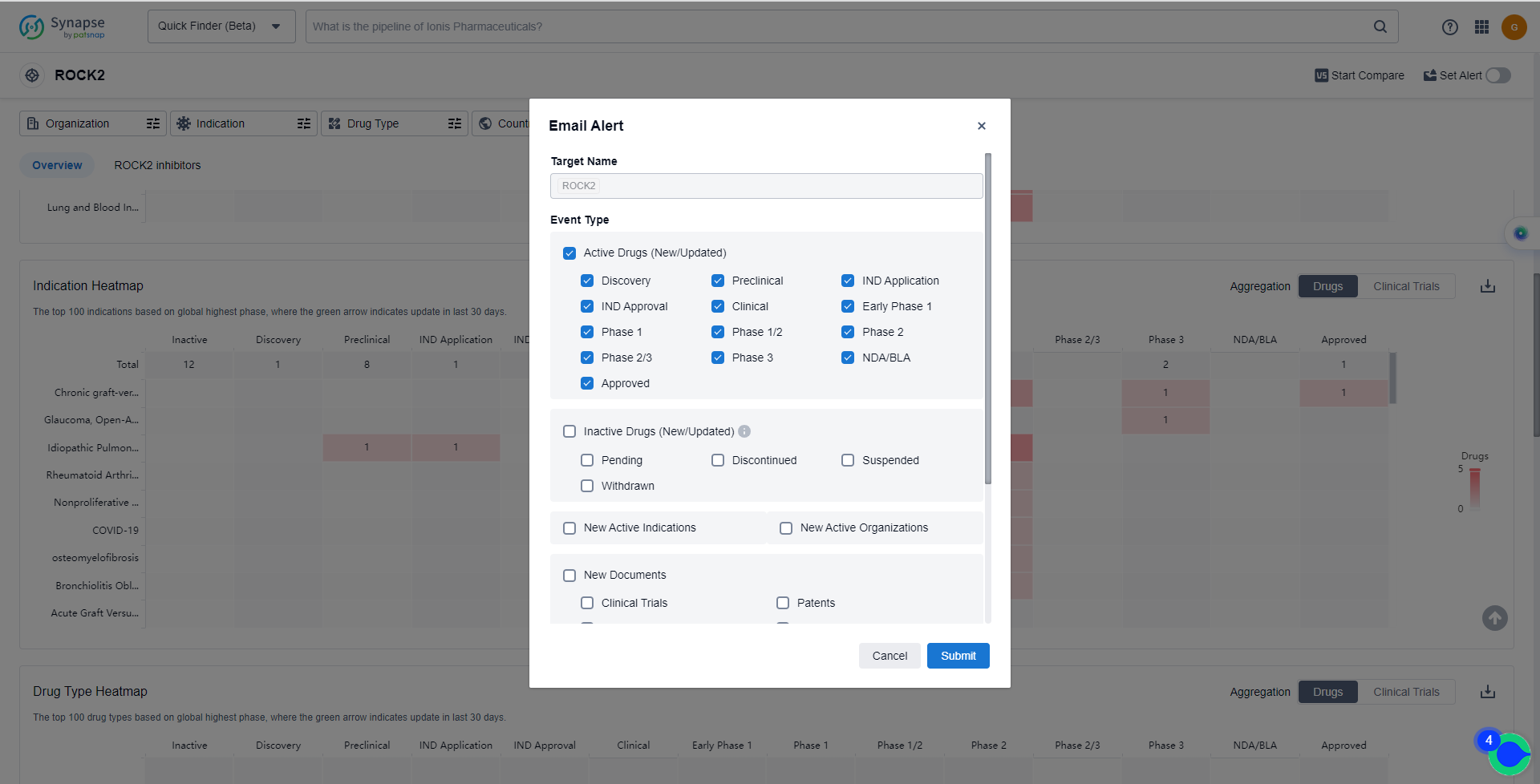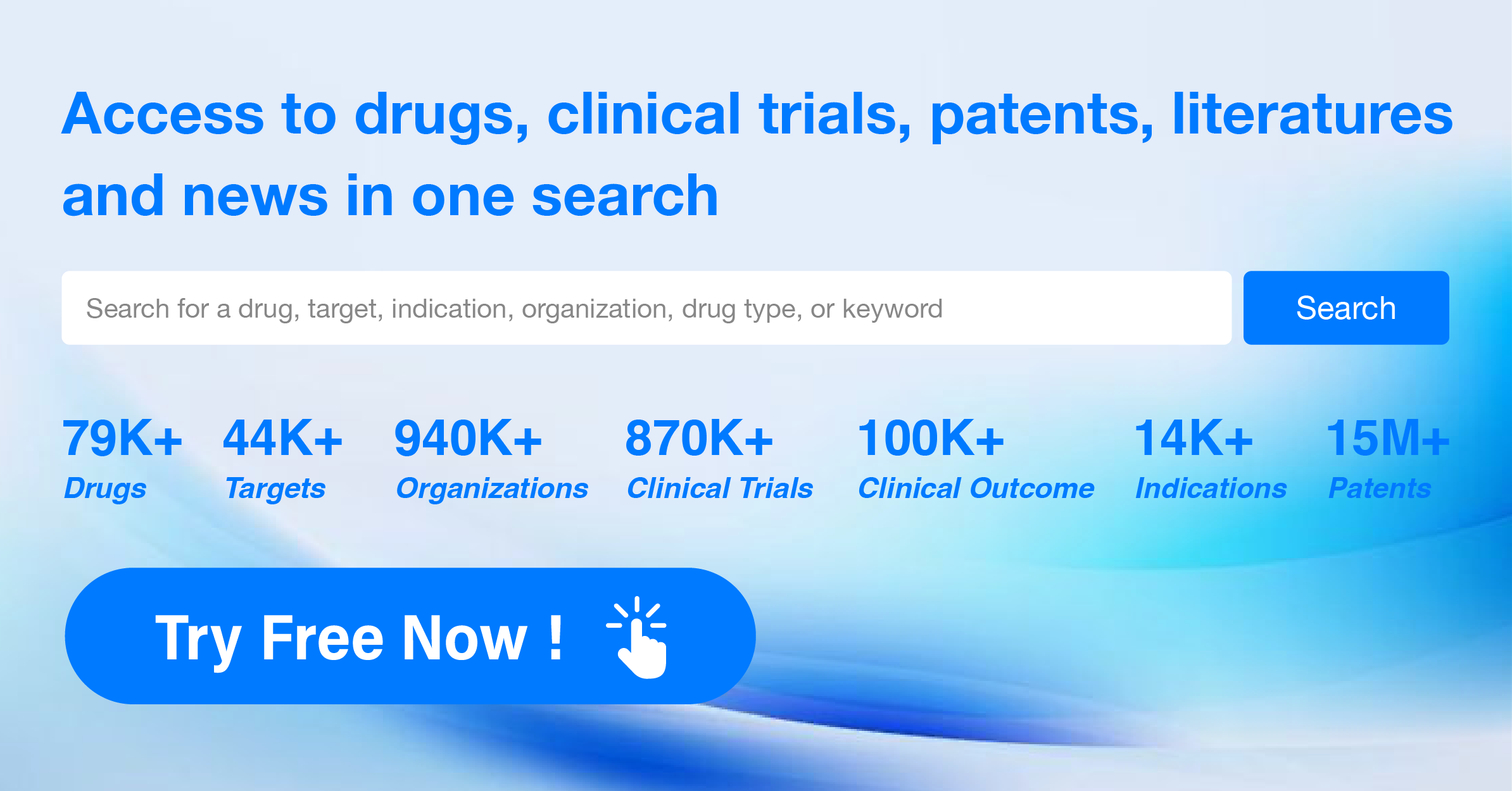What are ROCK2 inhibitors and how do you quickly get the latest development progress?
ROCK2, also known as Rho-associated coiled-coil containing protein kinase 2, is an enzyme that plays a crucial role in various physiological processes in the human body. It is primarily involved in regulating cell shape, movement, and contraction by modulating the activity of actin and myosin, key proteins involved in cell structure and motility. ROCK2 is also implicated in the regulation of blood pressure, inflammation, and tissue remodeling. Dysregulation of ROCK2 has been associated with several diseases, including cardiovascular disorders, cancer metastasis, and neurological conditions. Understanding the role of ROCK2 provides valuable insights for the development of therapeutic interventions targeting these diseases.
Based on the analysis of the provided data, the current competitive landscape of target ROCK2 shows that Sanofi is the leading company with the highest stage of development. Indications such as chronic graft-versus-host disease, glaucoma (open-angle), and idiopathic pulmonary fibrosis have approved drugs under the target. The most rapidly progressing drug types are small molecule drugs and there is also a presence of unknown drug types. The countries/locations developing fastest under the target ROCK2 include the United States, China, Japan, South Korea, and various countries in the European Union. The future development of target ROCK2 will likely see continued growth and competition among companies, with a focus on indications such as idiopathic pulmonary fibrosis and potential advancements in small molecule drugs.
How do they work?
ROCK2 inhibitors are a type of drugs that target and inhibit the activity of the protein ROCK2 (Rho-associated coiled-coil containing protein kinase 2). ROCK2 is an enzyme that plays a crucial role in various cellular processes, including cell contraction, migration, and proliferation. By inhibiting ROCK2, these inhibitors can modulate these cellular processes.
From a biomedical perspective, ROCK2 inhibitors are of interest due to their potential therapeutic applications. They have been studied for their potential in treating conditions such as cardiovascular diseases, cancer, and neurological disorders. In cardiovascular diseases, ROCK2 inhibitors have shown promise in reducing blood pressure and preventing vascular remodeling. In cancer, these inhibitors can inhibit tumor growth and metastasis by targeting cancer cell migration and invasion. Additionally, ROCK2 inhibitors have been investigated for their potential in neurodegenerative diseases, as they can modulate neuronal growth and regeneration.
Overall, ROCK2 inhibitors are a class of drugs that target the ROCK2 protein and have potential therapeutic applications in various biomedical fields.
List of ROCK2 Inhibitors
The currently marketed ROCK2 inhibitors include:
For more information, please click on the image below.
What are ROCK2 inhibitors used for?
ROCK2 inhibitors are currently being studied for their potential therapeutic applications in several conditions: Alzheimer’s Disease, Interstitial Lung Diseases, Fibrosis. For more information, please click on the image below to log in and search.
How to obtain the latest development progress of ROCK2 inhibitors?
In the Synapse database, you can keep abreast of the latest research and development advances of ROCK2 inhibitors anywhere and anytime, daily or weekly, through the "Set Alert" function. Click on the image below to embark on a brand new journey of drug discovery!








